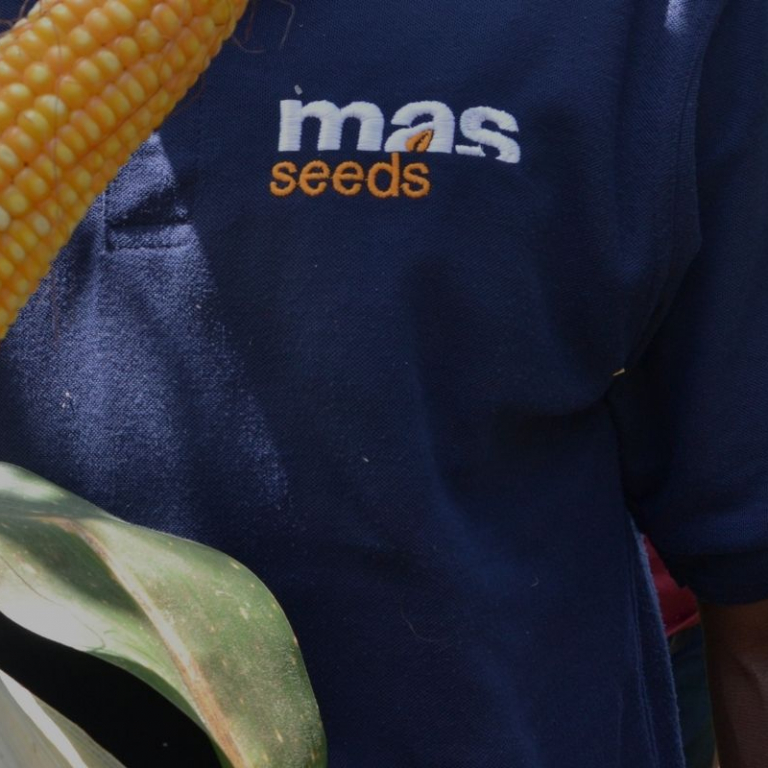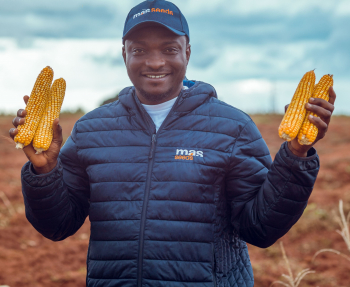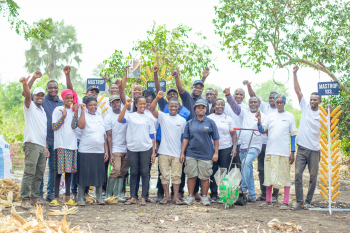Haut-Mauco, May 11, 2022
There is no one-size-fits all solution for corn hybrids. Farmers need local solutions for the myriad of challenges they face including weather, soil conditions and pest pressures. This means breeders must rise to the challenge.
A Boost for Tropical Environments
As anyone who has farmed can explain, you can’t ask a corn hybrid suited for temperate conditions to perform in the various tropical climates. It takes breeding to find genetics fit for each hectare.
“We have to develop varieties that can help farmers mitigate the effects of climate change, especially varying weather conditions,” says Shaibu Osman, MAS Seeds Research and Development Lead in Ivory Coast. “While in Europe you’re looking for robust varieties, in West Africa we are looking for varieties that are very stable in terms of yield across different environments and weather conditions.”
.png)
Farmers in Ivory Coast, Mexico and China Need Localized Solutions
The environments in which farmers grow corn in these countries are prone to drought, extreme heat and other challenges not often seen in more temperate climates like the U.S. or parts of Europe. This means corn hybrids mass-marketed to those countries likely won’t be a good fit for West Africa, Mexico and China. Therefore, a tropical corn breeding program, combined with the efficiencies found in our longer-standing temperate breeding company, could be these farmers’ ticket to success.
“We started screening for hybrids in West Africa five years ago,” says Denis Villenave, New Markets and Licensing Director for MAS Seeds. “Agricultural practices are much different in these areas than what we have in Europe, we have to adapt it to more stress.”
While we have a long history of corn breeding, MAS Seeds relatively new to the tropical market. Two years ago, we purchased a tropical breeding program, complete with genetics favorable to those climates. Now, we are integrating those genetics and breeding priorities into our program.
.png)
Test Products in Real-World Conditions
To drive home our purpose further, we test all tropical hybrids in the very soils and conditions in which they’ll eventually be grown. We have trials in West Africa, Mexico and parts of China to ensure real-condition results, not to mention the experiments we have in Europe.
“I think that’s what gives these products an advantage, they’re adaptable,” says Marco Oropeza, MAS Seeds Corn Breeder in Mexico. “I’m also very excited to introduce new genetics into our portfolio with the tropical corn line.”
“In five to ten years we expect to bring drought tolerant hybrids to the market,” Osman says. “We’re also working on resistance against fall armyworm, a huge pest in these countries, and against stalk rots to create stronger and more productive hybrids.”
MAS Seeds continues to do research in the field of hybrid seeds because it is a growing market. Especially because the technologies available in western Europe will allow us to enter this market with robust and affordable hybrids that aim to increase productivity, so local farmers can increase their income in a sustainable way. Better genetics and stable hybrids mean a brighter future for low-income farmers in West Africa, Mexico, and China.
.png)
Tropical corn breeding answers also temperate area climatic challenges
In-field experimenting and greater genetic diversity mean there is more opportunity for breeders to isolate drought-resistant, pest-resistant, and overall stable hybrids for farmers, not only for tropical regions.
By incorporating tropical germplasm into the temperate corn breeding program, we are addressing climatic concerns such as drought and heat also for temperate regions. New genetics means a greater outlook for farmers looking for sustainable solutions all around the world.



